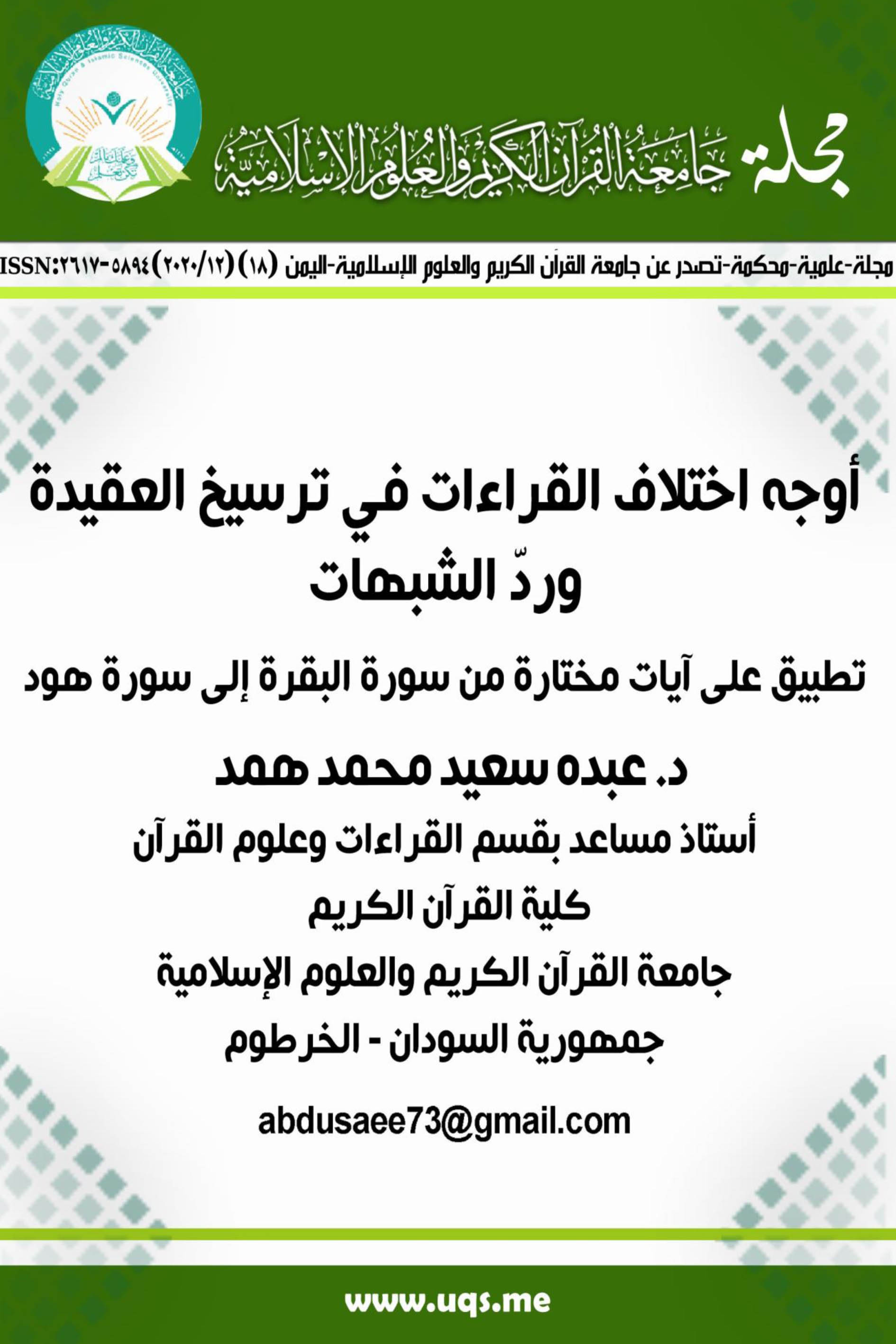Aspects of Different of Qur'anic readings (Alqira'at) in establishing Islamic Faith and rejecting suspicions
(Application to selected verses from Surat Al-Baqarah to Surat Hud)
DOI:
https://doi.org/10.61821/xgkjcj89Keywords:
Qur’anic readings, aspects of readings, differing Qur'anic readings, responding to suspectAbstract
: The study
aims to identify the differences in readings of the Qur'an, and their impact
on matters of belief and to infer them, and to induct the doctrinal issues
related to the differences in readings. To indicate what should be towards it,
in the verses of the subject of study.
This research deals with aspects of Alqira'at (The Qur'anic readings) in
establishing faith and rejecting suspicions in the selected verses from Surat
Al-Baqarah to Surat Al-Nisa ', as it included the effect of these doctrinal
issues in that the reward is due to work with the mercy of Allah, , and it
includes a response to those who claim that the slave has no action and that
the punishment is not brought about by the action, and that challenging the
steadfast reading of the Holy Prophet, subject to grammatical
measurements; a great problem in matters of belief and faith.
It also dealt with in the selected verses from Surat Al-Ma’idah to Surat
Hud, the dialogue that took place between Jesus, (PBUH), and his
companions, about the issue of Ability.
And what came in the question of Noah - (PBUH) - to his Lord For
saving his son, and Allah answered him that he is not from his family, as
there was a confuse regarding the permissibility of betrayal of the wives of
the prophets, and it was decided to deny this to the imams of the
predecessors.
Research Finding and recommendations: If the Noble Qur’an
contravenes norms and grammatical rules; the Qur’an is judged and not
judged, and grammatical norms are not paid attention to, and that the
Islamic institutions must take care in explaining the differences in reciting
related to doctrinal matters, and publishing them in the broadest public
media.
Downloads

Downloads
Published
Issue
Section
License
©This article is an open access article distributed under the terms and conditions of the Creative Commons Attribution (CC BY) license



